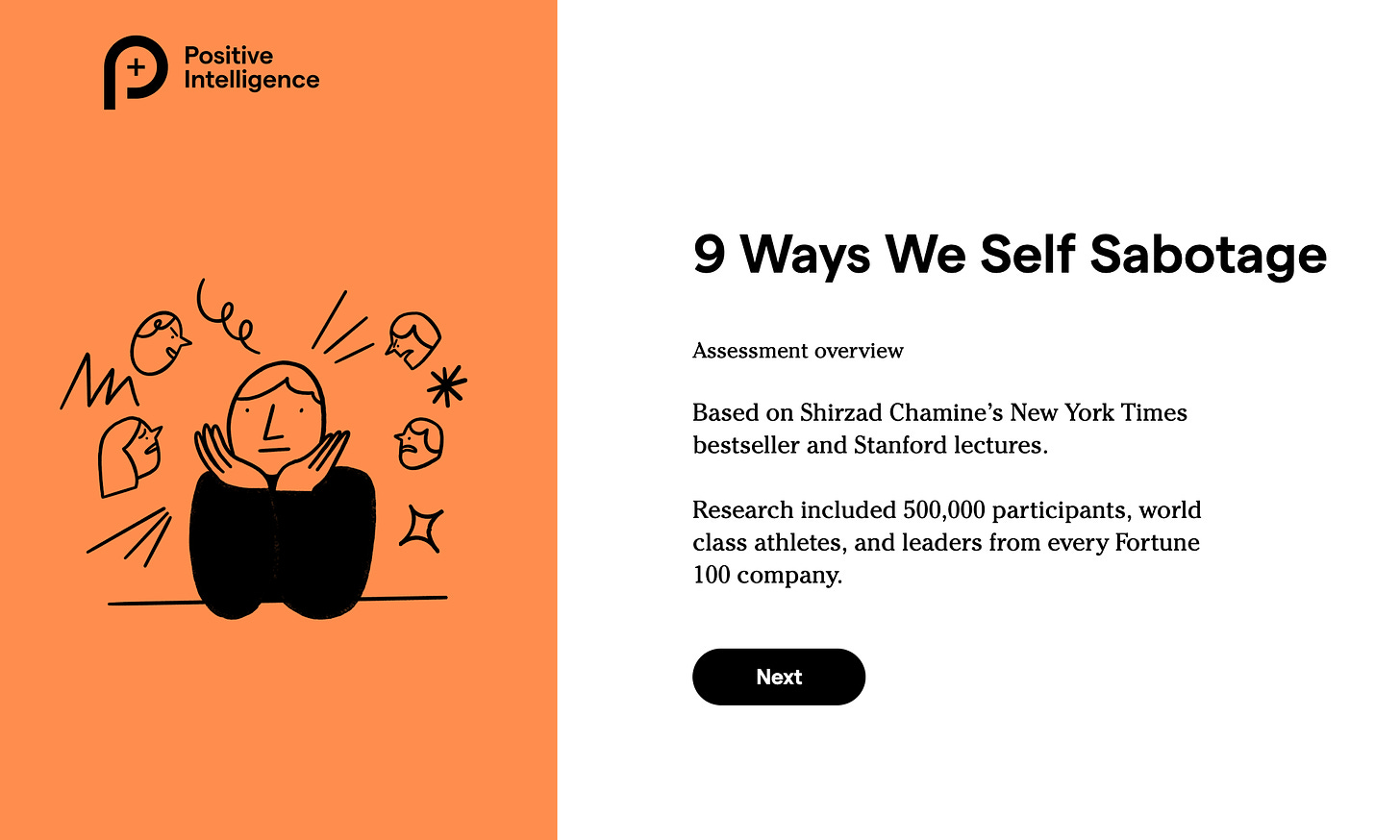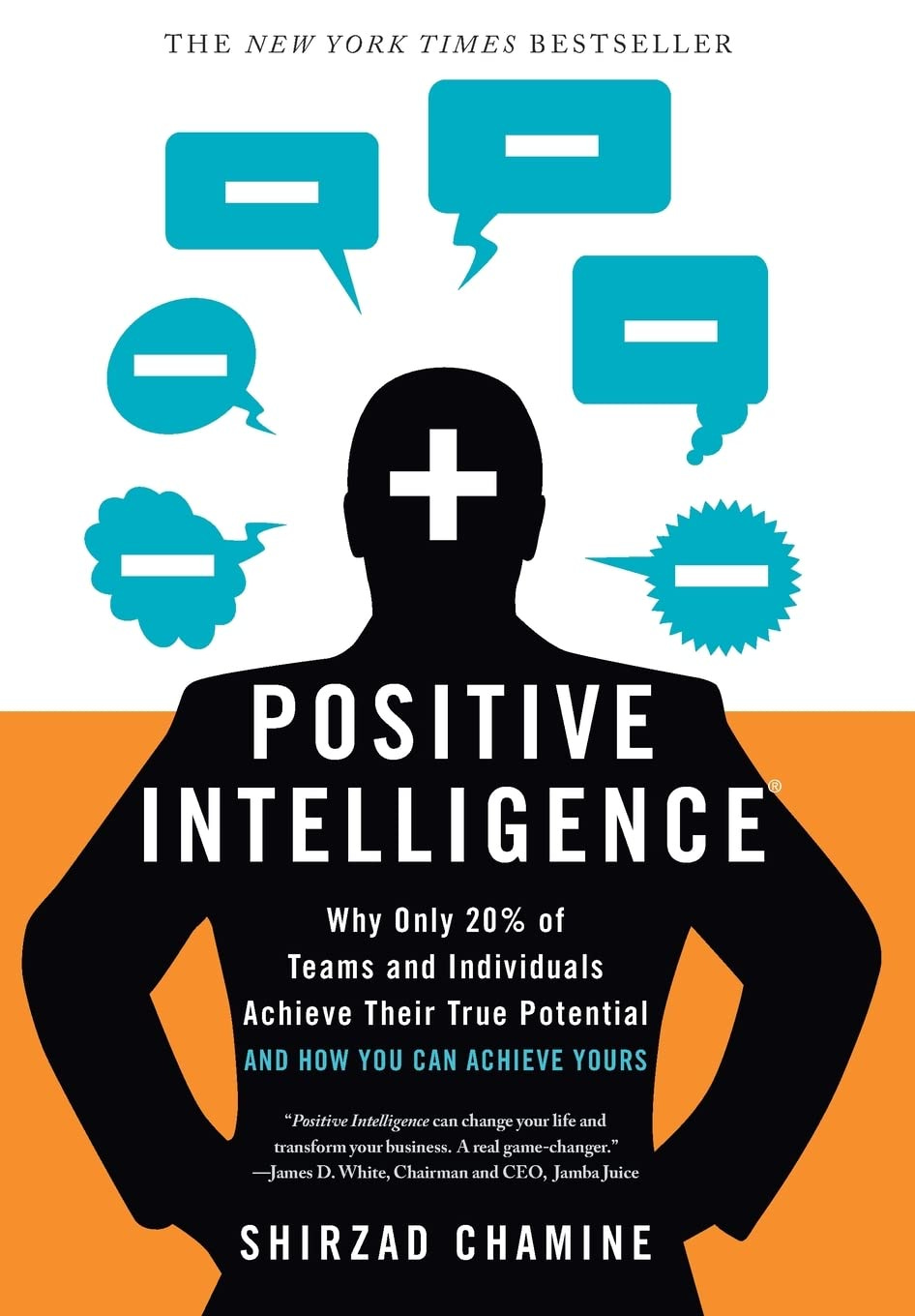Know who can be the biggest motivator and driver of your success?
You.
Know who will be the biggest saboteur to your success?
Also, you.
There are many ways in which you can sabotage yourself and hold yourself back from what will make you truly happy.
And it is your mind that is very often your own worst enemy.
While it can often work for you, your mind also has the power to sabotage your happiness and success.
These internal voices and thought patterns that seem to undermine your best efforts have a more complex origin than you might think.
Evolutionary survival instincts, early life experiences, cultural influences, self-preservation, and cognitive biases all play a part. While they may have served a purpose in the past, more often than not, today they can lead to stress, unhappiness and self-doubt.
Thousands of years ago, humans were constantly scanning the environment for warning signs, negative stimuli, and threats – a survival mechanism ingrained over millennia. And it means that today your brains is hardwired to focus on things that could be harmful to you, making it easy for your mind to fixate on perceived weaknesses or dangers.
Your early life experiences, upbringing, family dynamics, and past traumas also play a pivotal role. Negative experiences during childhood can sow the seeds of self-doubt and self-criticism. When exacerbated by societal norms, media messages, and cultural expectations, negative thought patterns are easily perpetuated.
The challenge is that your mind is trying to do the right thing. It's just that sometimes it needs help identifying what that right thing is and what's truly best for you today.
Often, your thinking patterns and habits have emerged as coping mechanisms. They aim to protect you from perceived threats, maintain a sense of control, or serve as a means of self-preservation when dealing with challenging or stressful situations.
Cognitive biases, such as confirmation bias and negativity bias, reinforce this thinking and make it easier for negative thought patterns to take root, exacerbating their impact over time.
And regardless of your level of success, these saboteurs can continue to torment and grow louder.
These thought patterns can take many forms, and Stanford University's Shirzad Chamine has distilled them into a simple yet high impact model of Positive Intelligence – a set of universal habitual patterns underpinned by subconscious beliefs and assumptions that work against your best interests.
These ten "Saboteurs" are the invisible masters of your mind, the internal voices of self-doubt, fear, and negativity.
The model includes characters like the Judge (who finds fault in and judges yourself and others), the Controller (who believes you are either in control or out of control), and the Hyper Achiever (who keeps you focused on external success as a criterion for happiness).
There’s a simple assessment below to help you identify which are strongest for you.
Because it is possible to manage these saboteurs and build a more positive and resilient mindset. And it is worth the effort.
So, if you’d like to get your mind working more positively for you, read on.
Assess & Expose: Chamine’s company Positive Intelligence offer a simple free assessment that you can complete.
Having studied in his short programme for coaches, it is now something that I ask all my clients to do.
The results can be incredibly insightful and offer a different perspective into how you can get in your own way.
The assessment is free and will take about 7-10 minutes. Just click on the image below.
After completion, request that your results be sent to your email address and you will receive a short series of emails which are geared to helping you understand what your saboteurs are and introducing action you can take. You can subscribe at any time.
Reflect: Building awareness is the very first step. Complete the assessment and then take a moment to reflect on the results. Think about what resonates with you and what doesn’t.
The write down:
My greatest saboteur is:
If I were to give it a name, I might call it:
The kind of things it often says to me are:
It makes me feel:
Its justification is:
Its impact on myself and others is:
If I don’t deal with it, it will ultimately cost me:
If you are enjoying this week’s issue please hit the ❤️ button at the top of this email so that more leaders can find it.
Watch: This talk by Shirzad Chamine at Google provides an introduction to your inner saboteurs and how to catch them in the act. It makes a useful and thought provoking lunchtime watch.
Read: For a more in depth look, Chamine’s book, Positive Intelligence, provides a set of tools to help you strengthen your brain muscles and increase the amount of time your mind acts in your best interest. Work with your coach to help you put your insights into action.
If you’ve enjoyed this week’s issue please hit the ❤️ button at the top of this email so that more leaders can find it.
Meantime if you haven’t already, you can subscribe to receive the next issue straight to your inbox.










